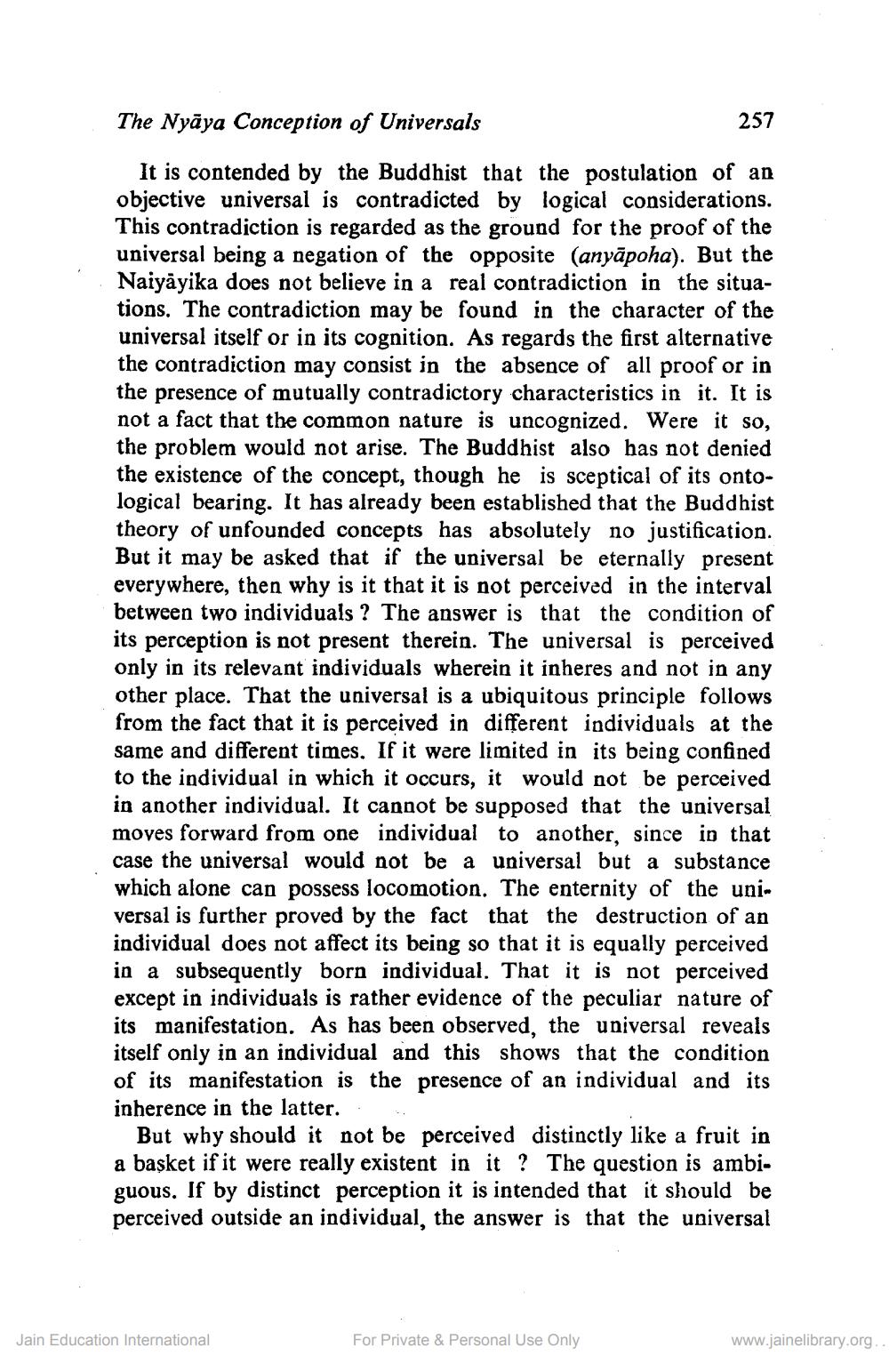________________
The Nyāya Conception of Universals
257
It is contended by the Buddhist that the postulation of an objective universal is contradicted by logical considerations. This contradiction is regarded as the ground for the proof of the universal being a negation of the opposite (anyāpoha). But the Naiyāyika does not believe in a real contradiction in the situations. The contradiction may be found in the character of the universal itself or in its cognition. As regards the first alternative the contradiction may consist in the absence of all proof or in the presence of mutually contradictory characteristics in it. It is not a fact that the common nature is uncognized. Were it so,
he problem would not arise. The Buddhist also has not denied the existence of the concept, though he is sceptical of its ontological bearing. It has already been established that the Buddhist theory of unfounded concepts has absolutely no justification. But it may be asked that if the universal be eternally present everywhere, then why is it that it is not perceived in the interval between two individuals ? The answer is that the condition of its perception is not present therein. The universal is perceived only in its relevant individuals wherein it inheres and not in any other place. That the universal is a ubiquitous principle follows from the fact that it is perceived in different individuals at the same and different times. If it were limited in its being confined to the individual in which it occurs, it would not be perceived in another individual. It cannot be supposed that the universal moves forward from one individual to another, since in that case the universal would not be a universal but a substance which alone can possess locomotion. The enternity of the universal is further proved by the fact that the destruction of an individual does not affect its being so that it is equally perceived in a subsequently born individual. That it is not perceived except in individuals is rather evidence of the peculiar nature of its manifestation. As has been observed, the universal reveals itself only in an individual and this shows that the condition of its manifestation is the presence of an individual and its inherence in the latter..
But why should it not be perceived distinctly like a fruit in a basket if it were really existent in it ? The question is ambi. guous. If by distinct perception it is intended that it should be perceived outside an individual the answer is that the universal
Jain Education International
For Private & Personal Use Only
www.jainelibrary.org..




